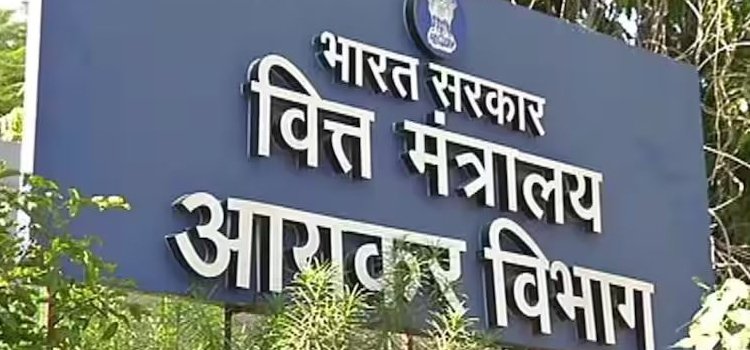STATES
“Gujarat Can Be India’s Leading IT Hub”: Sachin Gusia, Director - ICT, GoG
- IBJ Bureau
- Mar 03, 2022

Gujarat
recently unveiled a new information technology (IT) policy – IT/ITeS Policy
2022-27 – which aims to transform the State into a major IT centre of the
country. The new IT policy is targeting to create 1 lakh new jobs and achieve
IT exports of over Rs 25,000 crore from the current Rs 3,101 crore – in five
years. The targets are quite too ambitious, but the IT policy is also equally
innovative in its approach, points out Sachin Gusia, Director, Directorate of
ICT & e-Governance, Department of Science and Technology, Government
of Gujarat, and Managing Director, Gujarat Informatics Limited, the nodal
agency for promotion and development of IT sector in the State. Gujarat,
which scores high on the e-governance front with BharatNet’s high-speed internet
connectivity spread across the State, is looking to leverage the GIFT City
(Gujarat International Finance Tec-City) in State capital Gandhinagar. It is
also focusing on other teeming cities, like Rajkot, Surat and Vadodara, to
promote the IT industry. In a wide-ranging interview with Amit
Brahmabhatt, Mr Gusia – an Indian Revenue Service (IRS) officer of the 2008
batch – speaks about the new IT policy and Gujarat’s potential to become the
country’s leading IT destination.
Despite being a major industrial hub and leading State in e-governance, why does Gujarat lag behind when it comes to IT industry?
Traditionally, the government’s focus had been on the manufacturing industry and not so much on the services sector. In the past decade however, things have been changing. Gujarat today houses IIITs (Indian Institutes of Information Technology) in Surat and Vadodara apart from other reputes institutes, such as Dhirubhai Ambani Institute of Information and Communication Technology and Indian Institute of Technology (IIT) in Gandhinagar and GTU (Gujarat Technological University). The IT sector needs manpower to boom, and these institutes have been building up the talent pool. Besides, Gujarat is emerging as a fintech centre with the GIFT City. These enabling factors of good infrastructure, good institutes and GIFT City will provide a big boost to the IT sector.
How would you describe the present
environment for IT in the State?
Salaries
of IT professionals have increased anywhere between 25 and 30 per cent during
the COVID-19 pandemic. IT professionals with good experience are in big demand,
and the IT industry is facing a resource crunch. There is a rising demand for
IT employees of Gujarat from companies in Bengaluru, Hyderabad, Gurugram and
even abroad. These are the best of times for IT professionals and the IT
industry. IT companies in India and abroad have realised that a talent pool is
available in Gujarat. The recent launch of the State’s IT policy and its many
incentives will help tap the potential and make Gujarat an IT hub.
How does the new IT policy differ from
the previous one, and how will it boost the State’s IT sector?
The
biggest difference is a huge jump in incentives provided in the current policy
for IT companies setting up their base in the State. The maximum capital
expenditure (capex) support in the earlier policy was Rs 1 crore. This has now
increased massively upto Rs 50 crore for a normal project and Rs 200 crore for mega
projects. There is also the government’s support for IT companies’ operational
expenditure (opex). The opex support for smaller projects is 15 per cent of the
companies’ operational cost or up to Rs 20 crore per year for five years. For
mega projects, the opex support works out to Rs 40 crore per year for five
years.
It
is easy for IT companies to set up operation in the State today as the
necessary infrastructure is already in place. Moreover, the government will pay
IT companies Rs 10,000 per seat per month for two years and thereafter Rs 5,000
per seat per month or 50 per cent of the rent, whichever is higher. If the companies
appoint employees from Gujarat, the State will pay them Rs 50,000 per employee as
a one-time support. This support will increase to Rs 60,000 per employee in
case of appointment of women employees. The government will also chip in and
reimburse the employers’ EPF contribution. We are also helping in making young
people employable in IT companies by providing them a one-time financial
support. Eligible candidates can take up any online or offline course and equip
themselves with better skills, and the government will provide them with 50 per
cent of the fees or Rs 50,000, whichever is lower. So, the policy incentives
make economic sense for IT companies elsewhere to move to Gujarat.
Is the State taking any initiative in
nurturing emerging technologies, such as artificial intelligence (AI)?
We
are coming up with an AI Centre of Excellence, which would involve training in higher-skilled
courses, such as AI, blockchain and other emerging technologies. In fact, the
policy takes care of the entire gamut of IT ecosystem in a comprehensive manner.
We are also supporting setting up of data centres. There is a capex support of
Rs 150 crore or 25 per cent of the cost of setting up a data centre, whichever
is lower. Power subsidy of Re 1 per unit for five years is also a part of the
incentives. A data centre essentially needs a cable-landing station. So, we are
supporting setting up of a cable-landing station with Rs 20 crore or 25 per
cent of the cost, whichever is lower, along with the power subsidy.
What distinguishes Gujarat from other IT
destinations in the country?
Maharashtra,
Karnataka and Telangana are ahead of Gujarat in terms of the IT industry. We
have gone through the IT policies of these leading States as well as IT
policies of many other States, and we have realised that we have to be
competitive to succeed. Bengaluru, Hyderabad or Gurugram are ahead because of
the momentum. Our IT policy with a number of incentives has precisely been
drafted to break that inertia and emerge among the top-five IT States in the
next five years. Today, take for instance, that a foreign company wants to set
up its operation in India and there is a choice between Bengaluru and
Gandhinagar. Resources in Gandhinagar are as good as any other Indian city. Employees’
remuneration is lower here and so are the rentals. Gandhinagar actually scores
over Bengaluru when it comes to cutting down costs of operation and making IT
companies competitive globally. We are on a par with any other city in the
country in terms of internet connectivity and speed. And in our policy
incentives, I must say that we are far superior to those of other leading IT
States.
What message would you like to give to
prospective investors eyeing Gujarat’s IT sector?
The
government of Gujarat will always stand by you. If you choose Gujarat, we will
give you the best law and order, infrastructure, policy support, and we will be
there with you in any time of crisis. You can walk into our offices without any
prior appointment, and we will try our best to solve all your issues. We want
to stress that Gujarat has the potential and the talent pool to make it a
leading IT hub of India.





















Report By
View Reporter News